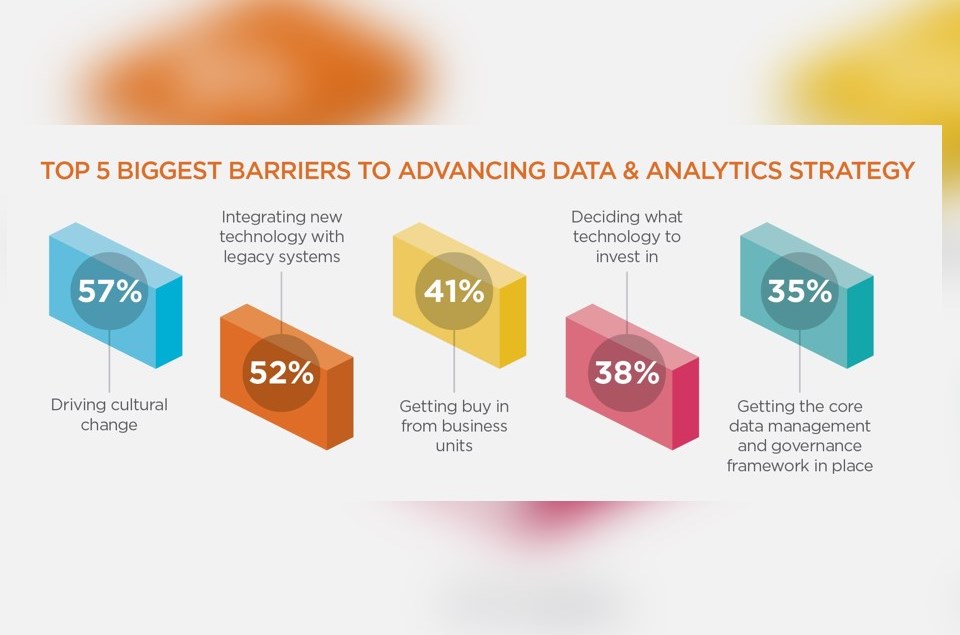Ahead of the biggest Chief Analytics Officer event of the year, CAO, Fall taking place on October 2-5 in Boston, we caught up with one of our amazing speakers, Andy Pulkstenis, Director – Advanced Analytics at State Farm to hear about his views on the challenges the industry faces and their plans for the future.
- What is the biggest challenge you face within your role today and how are you looking to tackle it?
Normally I would say recruiting advanced analytic/data science talent or educating business partners on what we could partner on to help them improve their strategies, but lately there has been more and more confusion around the term “data science,” what it is, and what it means. This confusion can cause real issues as various decision makers struggle to embrace data science without really understanding what it is or defining it, causing them to grasp at buzzwordy ideas rather than enact real solutions. One example is sometimes they discard solution A because it’s “the old way” while chasing after solution B, which is simply solution A with a new name. One way we’re addressing that is by trying to educate our internal partners and decision makers on exactly what it is, how it is a simple rebranding of what we have been doing for years, and also which concepts are new or improved. The goal is to get free from the hype cycle and back to applying advanced analytic concepts to practical business problems without distraction.
- In what ways are you working with your business to help drive value and insights driven decision making?
Education is the key piece here. Showing them what data is available, how to get it, and providing them with the tools and training to move beyond summary excel spreadsheets and dashboards into true analysis approaches. For the moderate stuff, they can become self-sufficient, and for the more advanced stuff we’re always here for them. But there are far more decisions being made in business today from spreadsheets and dashboards, so if you can break that cycle, improve the rigor and process being used when you are NOT in the room, that’s huge.
- What strategies do you employ for keeping current in a technological environment which is rapidly changing and developing.
The solution to this one is somewhat simplistic. The data science field has always been adapting, so continual education and improvement has been a mainstay for decades. Keeping up with techniques and approaches is the easier part. I think a new challenge lately is how fast the technology around data infrastructure and analytic processing environments is evolving. The stuff that enables the analytic solutions. That’s been the new wrench thrown into the system, and it requires an even closer partnership between your data experts, the analytic guys, and IT than ever before. The companies that can truly create that synergy, free from infighting and turf wars, and really partner as they move forward into this new world of computing power married to analytic approaches combined with access to an ever-growing vast data store – those will be the firms setting themselves up to lead their industry over the next decade.
- In what ways do you feel that the type of talent you are looking for within your teams has evolved over the past 2 years?
10 years ago data scientists had very similar profiles, but now there is much more variety in skill set. They all share common programming languages but have different skills and aptitudes based on the individual. Same with analytic approaches as recently there has been a resurgence in interest in machine learning, random forests, and some emerging techniques like text analytics which slightly broadened the set of tools considered mainstream. In the past the vast majority of a team was “well rounded” but now we see more deep specialization in some areas for some individuals, and it means you no longer recruit a profile, you may recruit specific skill sets to fill out your overall data science team (which means you better have a vision in mind for your overall data science team! How else will you know what you need for balance and effective problem solving?)
- How do you see demand for particular skill sets changing in the future?
I’m not sure it will change as much as people are predicting – after all, most of today’s hot “new” approaches (Machine learning, random forests, neural nets & deep learning, etc.) have actually been around for decades! They are just enjoying a resurgence in popularity and visibility right now. The one real evolution I see is an expansion of widely applicable programming languages. We’ve moved from a world dominated by SAS and R to a world shared with a ton of open source alternatives, and a future where all of them will need to integrate fairly seamlessly for effective implementation of solutions.
- Do you participate in any open data or philanthropic initiatives, either personally or professionally? What are your views on data/resource sharing and in what ways do you think it can help further the industry and shape the world in which we live?
We are pretty protective of our data for a variety of reasons from consumer privacy to competitive advantage, although we do often collaborate with manufacturers, regulatory groups, and consumer advocacy organizations on secure, anonymized analytic studies that don’t have any real financial benefit to our company but could benefit consumers as a whole. Many of those efforts are not publicized, but when we find something that could be of interest, either from a consumer savings or improved safety angle or whatever, we make sure to get those findings out there for general consumption. After all, it’s the reason we embark on those studies in the first place!

Hear Andy Pulkstenis, Director Advanced Analytics at State Farm, speak at Chief Analytics Officer, Fall taking place in Boston on October 2-5. Hear him speak about these issues and more and join him for his dedicated Masterclass ‘Do you know, or do you think you know? Incorporating business experiments into strategy development’ Join him and 300+ delegates, 125+ speakers for 4 days of content at Chief Analytics Officer, Fall.








